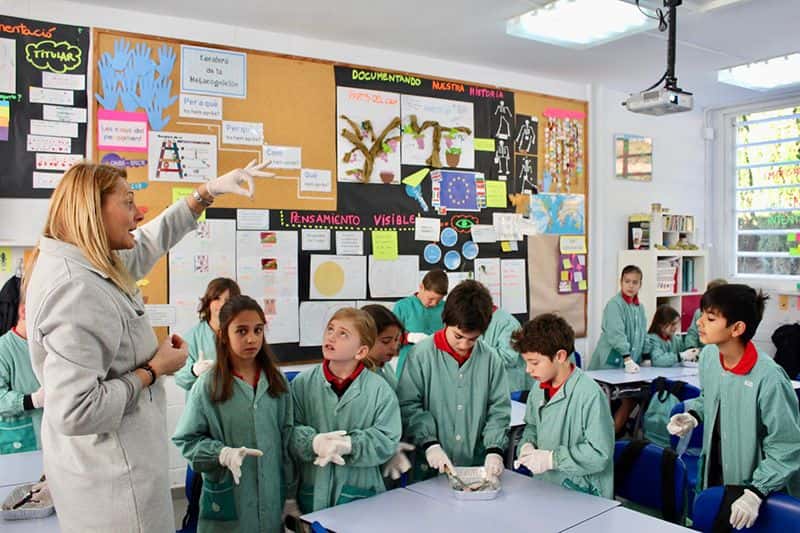Its own project, with Culture of Thinking

Our educational project is extremely modern, and we are excited to say that it focuses firmly to the future. It is based on our experience from a great many years in teaching, and on the metrics that provide good results in the official basic skill tests of the Generalitat de Catalunya and the in-house surveys we make on the students, who often score the peaceful and stimulating atmosphere in the school as extremely positively. We add the Culture of Thinking to all this, thanks to which the entire school is a showcase of constant, inclusive learning.
This educational project is also the result of years of study, research, courses, visits and congresses, with the ongoing concern in finding the best methods for our students, and with the conviction that the key lies in a good basis being established during pre-school education. With this goal in mind, we have acquired overall knowledge and good criteria to select the most suitable long term. We have therefore incorporated the Theory of Multiple Intelligences, bits of intelligence, the Reggio Emilia philosophy that makes the student the focal point of his or her education, successes of the Finnish education system that are always highly scored in the OECD PISA tests, and the Culture of Thinking.
With regard to this latter experience, the following report is about our team’s visit to Florida to attend the International Conference on Thinking, ICOT Miami 2018. This is a key event that reflects on new forms of teaching based on Neuroscience and the Harvard Project Zero.
For students to understand how they learn requires a higher level of awareness and willingness, yet it offers great benefits such as the pleasure of researching, setting one’s own goals, designing the strategies to meet them, and extrapolating all this to new knowledge. The result is more in-depth, extensive and independent learning.
The shift in paradigm involved in implementing the Culture of Thinking transcends the classrooms and permeates the entire school. Not only the classrooms, but also the corridors and other communal areas show the history of different types of learning. Large murals corroborate and sort the learning process to make thinking visible and aware and to promote and praise the learning achieved by students.
This new school culture motivates students to want to continue learning at all times and in all places, and it trains them to develop the skills required in the world: emotional, communicative, adaptive, etc. and turns them into intelligent thinkers, with the resources and strategies to tackle any situation that may arise.